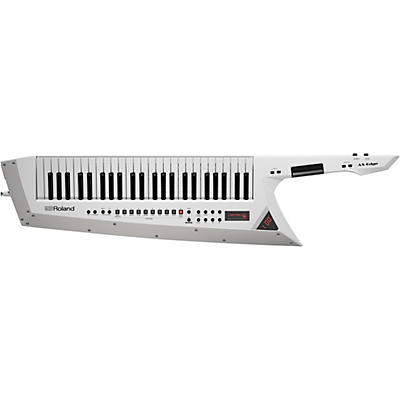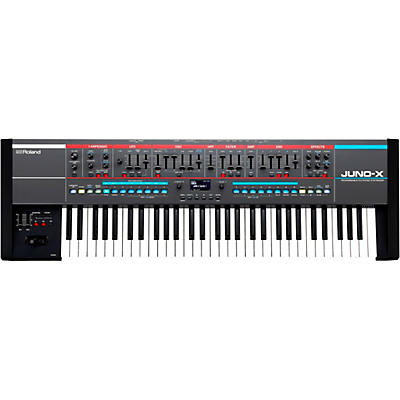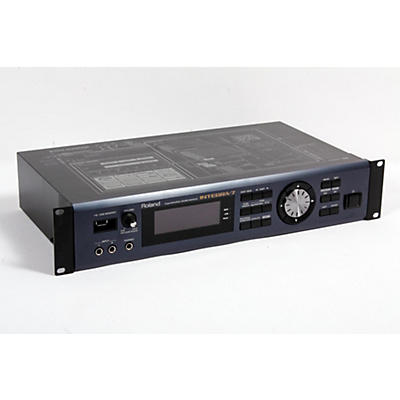Roland was formally founded in 1972, but the company had been around in different forms for twelve years before that. Despite its English name, it's actually a Japanese company—the founder, Ikutaro Kakehashi, actually picked the name Roland out of a phone book so that the company would feel more familiar in the Western market. His strategy worked, and Roland became one of the original heavy-hitters in electronic music. A string of wildly popular synthesizers, drum machines and other instruments carried Kakehashi's company through the 1970s and '80s, and Roland synthesizers are still making music all over the world today.
Roland's biggest studio-oriented performance synths are the Jupiter series, a revered name in the synthesizer community. With 3 parts on the Jupiter-50 and 4 parts on the Jupiter-80, they combine realistic keyboard voices with a powerful synth offering more than 1500 tones. Each model has 76 velocity-responsive keys—an outstanding range for a synthesizer, which makes it child's play for it to double as a traditional keyboard for piano and organ parts. The Jupiter models also support recording to and playing back from a USB memory stick, which can add a lot of flexibility to your studio setup.
If you're looking for something a bit more portable without giving up the most impressive Roland features, take a look at the JUNO series. These 61-key synths are easier to transport than the Jupiters, and they still give you velocity sensitivity and USB memory support. With a JUNO, you get a solid suite of synth functionality as well as a great selection of natural voices in a smaller, lighter package that's perfect for gigging. Still not portable enough? Then you'll want to look at the 37-key Gaia SH-01 or the SYSTEM-1. The Gaia packs a lot of power into its small enclosure, including a three-part synth engine, virtual analog and up to 5 stacked effects at a time. The SYSTEM-1 is a direct descendant of Roland's legendary '70s-era synthesizers and comes loaded with four oscillators as well as "Plug-Out" configuration, meaning it can run software emulators of classic synths on-board: no computer needed.
The most dynamic Roland might be the shoulder synthesizers. The AX-Synth and Lucina AX-09 are a throwback to the early 1980s sporting modern, up-to-date electronics and features. On-board sound generators allow the AX models to be played anywhere. In addition to all the tech they borrow from full-size Roland synths, the shoulder synthesizers also have a whole series of features specifically designed for their in-hand play style, such as the bender mode, proximity-sensitive D-beam, ribbon touch and modulation bar.
There is a ton of history in the Roland name, and the quality of their synthesizers speaks for itself. Available in every size from the tiny SYSTEM-1 and Gaia SH-01 to the impressive 76-key Jupiter-50 and Jupiter-80, there really is a Roland synth for every musician who graces the studio or stage.








































































































































